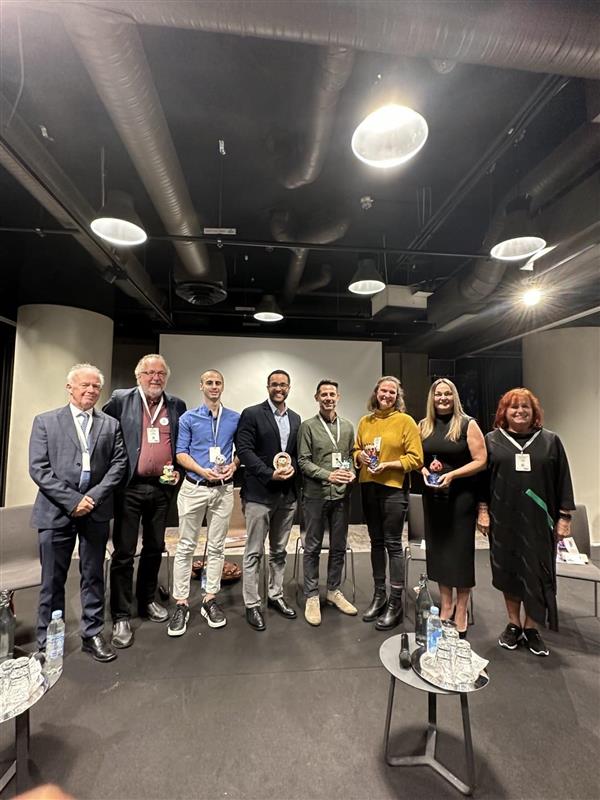EASPD Innovation Awards 2023: Who are the winners?

The European Association of Service providers for Persons with Disabilities (EASPD) congratulates Enable, Hubbie, Access4youInternational, e-Nable, Shekulo Tov Group and Studieförbundet Vuxenskola (SV) on winning EASPD’s 2023 Innovation Awards. Each of these 6 practices were recognised for enabling social innovation in the disability support services sector, keeping in line with theme of our Autumn 2023 conference: "Enabling Social Innovation: Concepts, Frameworks and Organisational Change." The winners of the third edition of the Innovation Awards received their awards at a ceremony hosted during the conference, which is currently taking place in Helsinki, Finland.
In addition, a workshop will be held at the EASPD Conference in Helsinki on 13th October where the winners will be presenting their promising practices at length. The winners are, in no particular order, as follows:
Enable: ENABLE Personal Assistant (PA) Model
The Enable personal assistant model is a self-managed, rights-based social care model. This model allows people to decide how their support is designed, and by whom. It sets up small, bespoke teams, chosen by the individual and contracted directly with them.
Hubbie: Ieder Zinneke zijn thuis
This practice is a collaboration between several services for homeless people (CAW – centre for public welfare) and Hubbie. The aim is to reintegrate homeless persons with disabilities into society, taking account of their talents and abilities and providing them appropriate support where necessary.
Access4you International: Access4you® certification
This is an international certification mark that provides detailed and reliable information on the accessibility of the built environment for persons with special needs in mobility, vision, hearing and cognitive areas, as well as for property owners, operators and tenants. These can be filtered by relevance and include descriptions, images, accurate dimensions, and useful photos.
e-Nable: Transforming digital images into 3D printed tactile images for Visual Impaired children
The practice involves transforming digital images into 3D printed tactile images. In doing so, e-Nable not only designs and creates open-source tactile images for people with visual impairments, but also trains teachers and families in this practice and its use in order to further develop the use of technology for inclusive education.
Shekulo Tov Group: Shekulo Tov’s scalable Vocational Engagement Enterprises (VEE)
This practice provides persons with complex disabilities with relevant and meaningful rehabilitation and training programmes that are socio-contextual, person-centred, and community-based. It is a transition-focused training model implemented through a circular and green economy approach.
Studieförbundet Vuxenskolan (SV): Mitt val
This practice aims to make politics more accessible through study circles where persons with intellectual disabilities learn how Swedish and European democracy works and prepare to take part in the next elections. They learn not only how to vote, but also how to think about voting.
With these awards, EASPD aims to spotlight the excellent work of our members to ensure people with a disability benefit from innovative services. EASPD hopes that these best practices can be a source of inspiration for other service providers as we work together towards the full implementation of the UNCRPD.
Supporting Documents
• Innovation Awards 2023 Booklet
For more information, please contact:
Renaud Scheuer
Head of Knowledge and Innovation
renaud.scheuer@easpd.eu
+32 2 233 77 23
Note to editors:
The European Association of Service providers for Persons with Disabilities is a non-profit European umbrella organisation, established in 1996, and currently representing over 20,000 social and health services for persons with disabilities. EASPD advocates effective and high-quality disability-related services in the field of education, employment and individualised support, in line with the UN CRPD principles, which could bring benefits not only to persons with disabilities, but to society as a whole.
The information contained in this publication does not necessarily reflect the official position of the European Commission.


